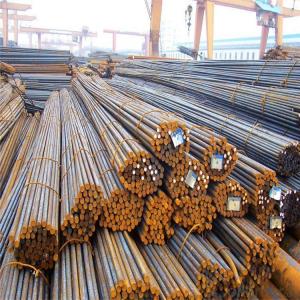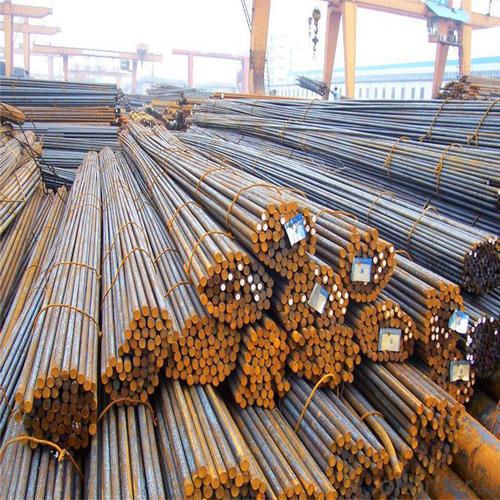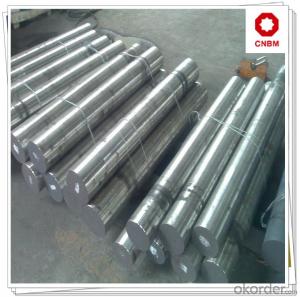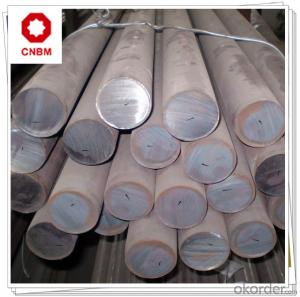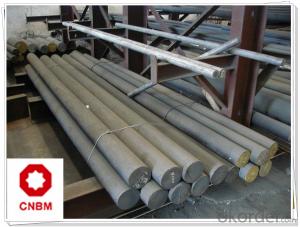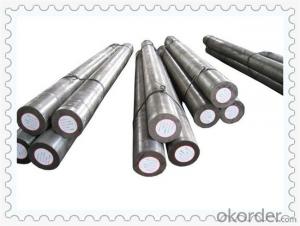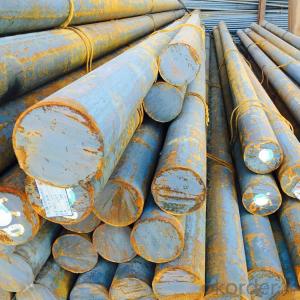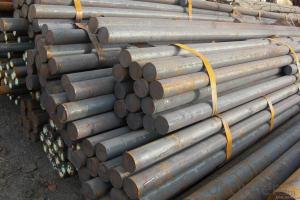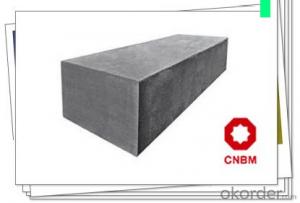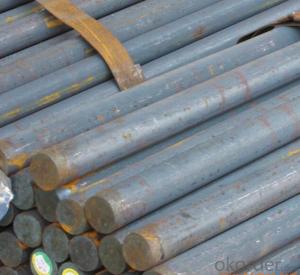Carbon Structure Steel 1040 S40C
- Loading Port:
- Tianjin
- Payment Terms:
- TT OR LC
- Min Order Qty:
- 100 m.t.
- Supply Capability:
- 500000 m.t./month
OKorder Service Pledge
OKorder Financial Service
You Might Also Like
Specification
Carbon Structure Steel 1040 S40C
Product Description of Carbon Structure Steel 1040 S40C
1. Steel grade: SAE1040, 40#, C40, S40C
2. Length: 6M-12M
3. Diameter: 16mm-300mm
4. Product range: round bar, flat bar, square bar
5. Technique: Hot rolled, forged, cold drawn
Specification of Carbon Structure Steel 1040 S40C
Material | S40C | Round bar | Dia(mm) | 16-300mm |
Process | EAF + LF + VD + Forged + Heat Treatment (optional) | Length (mm) | Max 12m | |
Heat treatment | Normalized / Annealed / Quenched / tempered | Flat bar | Thickness(mm) | 8-500mm |
Delivery condition | Hot forged +Rough machined (black surface after Q/T)+ Turned (optional) | Width(mm) | 70-200mm | |
Test | Ultrasonic test according to SEP 1921-84 D/d | Length (mm) | Max 12m |
Chemical Composition of Carbon Structure Steel 1040 S40C
C | Si | Mn | Cr | Ni | Cu |
0.37~0.43 | 0.17~0.37 | 0.35~0.65 | ≤0.25 | ≤0.30 | ≤0.25 |
Photo Show of Hot Rolled Steel Round Bar S20C
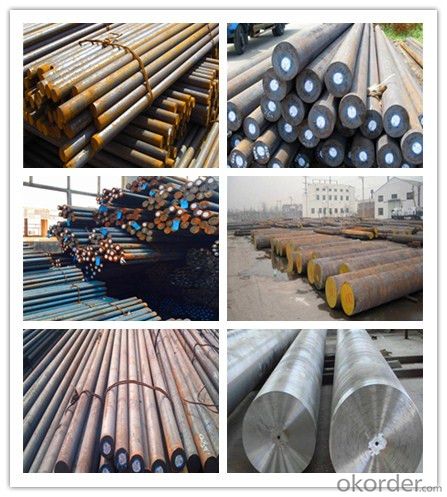
Packing and Delivery:
Packing in bundle package, or as customer's requirements.
Delivery Detail: 45 days after receiving the deposit.
Usage and Applications of Carbon Structure Steel 1040 S40C
1. Steel round bar is used in a large number of architectural and engineering structures. Or it can be used in construction of plants for the production of steel house frames, high-voltage transmission towers, bridges, vehicles, boilers, containers, ships, etc.
2. And we can use this kind of product on the performance of the mechanical parts if the demand is not very high.
3. Some special material steel round bar can be used for main shaft of steamer, hummer shank, with big section and supper force.
Company Information
CNBM International Corporation is the most important trading platform of CNBM group.
Whith its advantages, CNBM International are mainly concentrate on Cement, Glass, Iron and Steel, Ceramics industries and devotes herself for supplying high qulity series of refractories as well as technical consultancies and logistics solutions.


F A Q
1, Your advantages?
professional products inquiry, products knowledge train (for agents), smooth goods delivery, excellent customer solution proposale
2, Test & Certificate?
SGS test is available, customer inspection before shipping is welcome, third party inspection is no problem
3, Factory or Trading Company?
CNBM is a trading company but we have so many protocol factories and CNBM works as a trading department of these factories. Also CNBM is the holding company of many factories.
4, Payment Terms?
30% TT as deposit and 70% before delivery.
Irrevocable L/C at sight.
5, Trading Terms?
EXW, FOB, CIF, FFR, CNF
6, After-sale Service?
CNBM provides the services and support you need for every step of our cooperation. We're the business partner you can trust.
For any problem, please kindly contact us at any your convenient time.
We'll reply you in our first priority within 24 hours.
- Q: Can steel round bars be used for making connecting rods?
- Yes, steel round bars can be used for making connecting rods. Steel is a commonly used material for connecting rods due to its high strength and durability, making it suitable for withstanding the stress and load requirements of an engine.
- Q: What is the difference between a bright and a cold finished steel round bar?
- Two distinct types of steel bars are the bright steel round bar and the cold finished steel round bar. These bars differ in their manufacturing processes and resulting characteristics. The bright steel round bar, also known as a turned or polished bar, undergoes a process called turning or polishing. During this process, a lathe machine rotates the rough steel bar while a cutting tool removes its outer layer. This results in a smooth and shiny surface, enhancing the bar's appearance, dimensional accuracy, and surface finish. Bright steel round bars are commonly used in applications where aesthetics and a high-quality surface finish are important, such as architectural components, decorative items, and certain automotive parts. On the other hand, the cold finished steel round bar undergoes a different manufacturing process called cold drawing or cold rolling. This process involves passing the hot-rolled steel bar through a series of dies at room temperature. As a result, the bar's diameter is reduced while its length is increased. This cold working process improves the mechanical properties of the steel bar, including increased tensile strength, improved yield strength, and enhanced dimensional accuracy. Cold finished steel round bars are often used in applications that require high strength and precision, such as shafts, gears, bolts, and tools. In conclusion, the main distinction between the bright steel round bar and the cold finished steel round bar lies in their manufacturing processes and resulting characteristics. The bright steel round bar is turned or polished to achieve a smooth and shiny surface, while the cold finished steel round bar undergoes cold drawing or rolling to enhance its mechanical properties and dimensional accuracy. The choice between these two types of steel bars depends on the specific requirements of the application, such as the need for aesthetics, surface finish, strength, or precision.
- Q: Are steel round bars used in the aerospace industry?
- Yes, steel round bars are commonly used in the aerospace industry. Steel round bars are known for their high strength, durability, and resistance to corrosion, making them ideal for use in aircraft components and structures. These round bars are often used in the manufacturing of landing gears, engine mounts, structural frames, and other critical parts of an aircraft. Additionally, steel round bars are also used in the production of aerospace fasteners, such as bolts and screws, due to their ability to withstand high stress and provide a secure connection. Overall, steel round bars play a crucial role in ensuring the safety and reliability of aerospace systems.
- Q: How do you calculate the torsional strength of a steel round bar?
- To determine the torsional strength of a steel round bar, it is necessary to take into account its material properties and dimensions. The torsional strength, also referred to as torsional yield strength or shear strength, denotes the maximum torque or twisting force that a round bar can endure without experiencing permanent deformation or failure. The torsional strength can be calculated using the following formula: Torsional Strength = (Torsional Constant * Yield Strength) / (Polar Moment of Inertia * Length) 1. Torsional Constant: This constant relies on the shape of the round bar's cross-section. In the case of a solid round bar, the torsional constant is given by (π * D^4) / 32, where D represents the bar's diameter. 2. Yield Strength: This is the stress at which the steel material starts to plastically deform. It is typically provided by the manufacturer or can be determined through material testing. 3. Polar Moment of Inertia: This property signifies the round bar's resistance to torsional deformation. For a solid round bar, the polar moment of inertia equals (π * D^4) / 32. 4. Length: This denotes the extent of the round bar where the torsional force is applied. By substituting these values into the formula, the torsional strength of the steel round bar can be calculated. It is important to note that this computation assumes the round bar is completely homogeneous, devoid of any defects, and subjected solely to pure torsion. It is crucial to bear in mind that torsional strength is just one factor to consider when assessing the suitability of a steel round bar for a specific application. Other considerations, such as fatigue strength, corrosion resistance, and load-bearing capacity, should also be taken into account. For accurate calculations and appropriate material selection, it is advisable to consult a professional engineer or refer to pertinent industry standards.
- Q: Are steel round bars suitable for construction applications?
- Yes, steel round bars are suitable for construction applications. Steel round bars are widely used in the construction industry due to their strength, durability, and versatility. They offer excellent structural support and are commonly used in the construction of buildings, bridges, and infrastructure projects. Steel round bars can withstand heavy loads and provide stability to structures, making them suitable for various construction applications. Additionally, steel round bars can be easily fabricated, cut, and welded to meet specific project requirements. Their corrosion resistance properties also make them suitable for both indoor and outdoor construction applications. Overall, steel round bars are an ideal choice for construction projects due to their strength, durability, versatility, and ease of use.
- Q: What are the common alloying elements used in steel round bars?
- Steel round bars commonly contain alloying elements such as carbon, manganese, silicon, sulfur, and phosphorus. Carbon, the most significant alloying element, is responsible for the steel's strength and hardness. It enhances overall performance, increasing durability and resistance to wear and tear. Manganese, another crucial element, improves hardenability and strength while reducing brittleness and increasing toughness. Silicon is added to enhance the steel's resistance to oxidation, while small amounts of sulfur and phosphorus improve machinability. These alloying elements collaborate to produce steel round bars with specific properties suitable for various applications in industries such as construction, automotive, and manufacturing.
- Q: What is the resistance to wear of a steel round bar?
- The resistance to wear of a steel round bar is generally high due to its hardness and durability.
- Q: Can steel round bars be used for making electrical system components?
- Yes, steel round bars can be used for making electrical system components. Steel is a versatile material that has many applications in various industries, including electrical engineering. While other materials like copper are commonly used for electrical components due to their high electrical conductivity, steel can still be utilized for certain parts of an electrical system. Steel round bars can be used to manufacture structural components, supports, enclosures, or mounting brackets for electrical devices. Additionally, steel's durability, strength, and resistance to corrosion make it a suitable choice for electrical system components that require robust construction or protection from environmental factors. However, it is important to note that steel is not a good conductor of electricity compared to materials like copper or aluminum, so it may not be suitable for components that require high electrical conductivity.
- Q: Can steel round bars be used for making cooling system components?
- Yes, steel round bars can be used for making cooling system components. Steel is a versatile and durable material that can withstand high temperatures and pressures, making it suitable for cooling system applications. Steel round bars can be machined to specific dimensions and shapes required for different cooling system components such as pipes, fittings, valves, and heat exchangers. Additionally, steel has excellent thermal conductivity, allowing for efficient heat transfer in cooling systems. However, it is important to consider the specific requirements of the cooling system and consult with engineers or professionals in order to select the appropriate grade of steel and ensure compatibility with other system components.
- Q: What are the different testing methods for steel round bars?
- There are several different testing methods for steel round bars, including visual inspection, dimensional inspection, chemical composition analysis, mechanical properties testing, and non-destructive testing methods such as ultrasonic testing and magnetic particle inspection. Each of these methods helps ensure the quality and integrity of steel round bars, allowing for proper evaluation and identification of any potential defects or inconsistencies.
Send your message to us
Carbon Structure Steel 1040 S40C
- Loading Port:
- Tianjin
- Payment Terms:
- TT OR LC
- Min Order Qty:
- 100 m.t.
- Supply Capability:
- 500000 m.t./month
OKorder Service Pledge
OKorder Financial Service
Similar products
Hot products
Hot Searches
Related keywords
